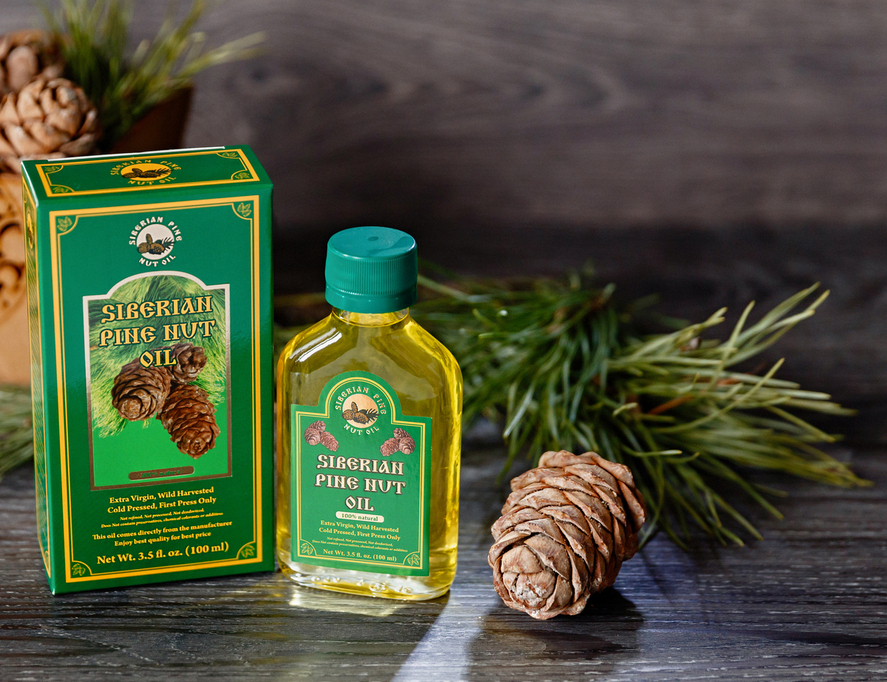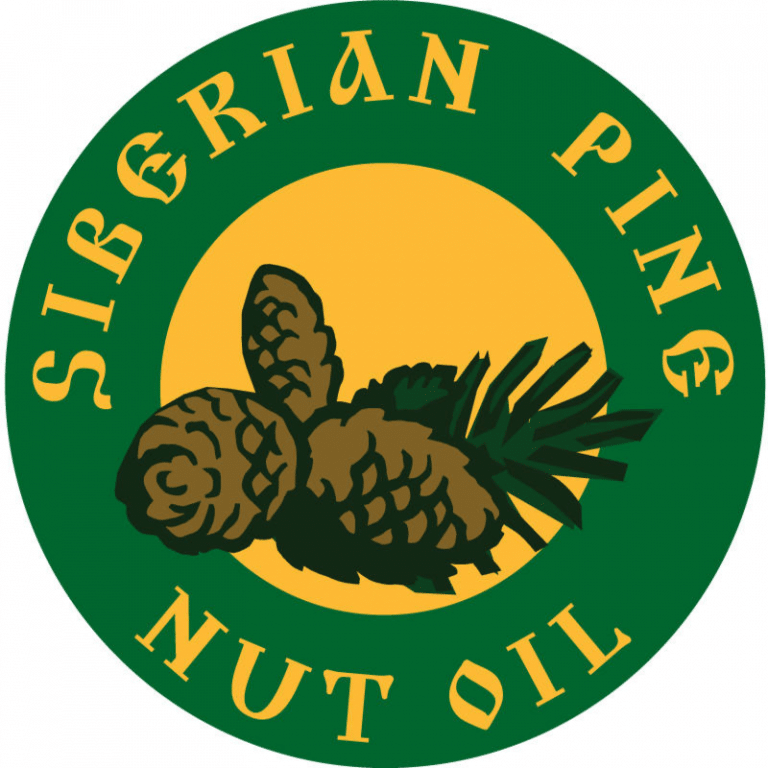Pine nut oil and stomach health

The stomach is one of the most important internal organs. The function of digestion and the general condition of the body, including immunity, depends on its health. Most people have experienced stomach problems (indigestion, pain) at least once in their lifetime, and millions around the world suffer from chronic diseases of this organ. By eating the right foods, you can reduce your risk of stomach diseases; moreover, the stomach also needs to be provided with certain micronutrients to function properly. Pine nut oil is a source of nutrients important for the stomach. In addition, pine nut oil heals the microflora and is an excellent preventive agent for stomach ulcers.
What nutrients does the stomach need?
Pine nut oil contains a whole range of microelements that positively affect the health of the stomach and related organs:
- Tocopherol (vitamin E). It prevents damage to the mucous membrane, strengthening its cells, thereby reducing the risk of developing gastritis.
- Thiamine (vitamin B1). Scientists have found that a deficiency of this vitamin increases the risk of developing gastrointestinal cancers. [1]
- Niacin (Vitamin PP). This vitamin regulates the production of gastric juice and prevents digestive disorders.
- The minerals manganese and potassium, as well as tocopherol, contribute to maintaining the health of the gastric mucosa.
- Nutrients good for the liver. All organs of the gastrointestinal tract are in close interaction. In the event that a liver disease develops, the stomach always suffers. Scientists have found that pine nut oil has a beneficial effect on the liver due to the high content of rare pinolenic acid. [2] Thus, pine nut oil is useful for the stomach, and also for other organs involved in the process of digestion.
- Nutrients beneficial to the autonomic nervous system: B vitamins, zinc, and magnesium. It is the nervous system that controls intestinal peristalsis.[3] In violation of intestinal motility, the acidic environment of the stomach enters the esophagus, which causes heartburn and belching, indigestion, and even peptic ulcers.
Pine nut oil is good for microflora
An imbalance in the microflora, or dysbacteriosis, can cause an allergic reaction, gastrointestinal problems (such as gastritis), caries, connective tissue diseases, and changes in the menstrual cycle. It is known that gastritis and peptic ulcers are caused by dysbacteriosis in almost 90% of cases.[4]
Pine nut oil is useful for microflora due to its composition and consistency. Folic, linoleic, and oleic acids, as well as carotenoids (vitamin A) accelerate the regeneration of the gastric mucosa, preventing the growth of pathogenic bacteria. Zinc contributes to the normal functioning of the spleen that produces some of the beneficial bacteria that colonize the stomach. Thus, the intake of pine nut oil helps to maintain the bacterial balance and healthy microflora in the stomach.
Do you want to forget about chronic stomach problems forever? Pine nut oil helps even in complex chronic cases. Add the oil to your diet, follow your meal plan and stay healthy!
REFERENCES
[1] Vasily A. Aleshin, Xiaoshan Zhou, et al. Interplay Between Thiamine and p53/p21 Axes Affects Antiproliferative Action of Cisplatin in Lung Adenocarcinoma Cells by Changing Metabolism of 2-Oxoglutarate/Glutamate
[2] Ferramosca A, Savy V, Conte L, Zara V. Dietary combination of conjugated linoleic acid (CLA) and pine nut oil prevents CLA-induced fatty liver in mice.
[3] Tkachenko BI Normal human physiology.
[4] Coker OO, Dai Z, Nie Y, Zhao G, Cao L, Nakatsu G, Wu WK, Wong SH, Chen Z, Sung JJY, Yu J. Mucosal microbiome dysbiosis in gastric carcinogenesis.
These articles come directly from researchers and are passed on to everybody. siberianpinenutoil.org assumes no liability for any content in these articles. For Educational purposes only. This information has not been evaluated by the Food and Drug Administration. This information is not intended to diagnose, treat, cure, or prevent any disease.

